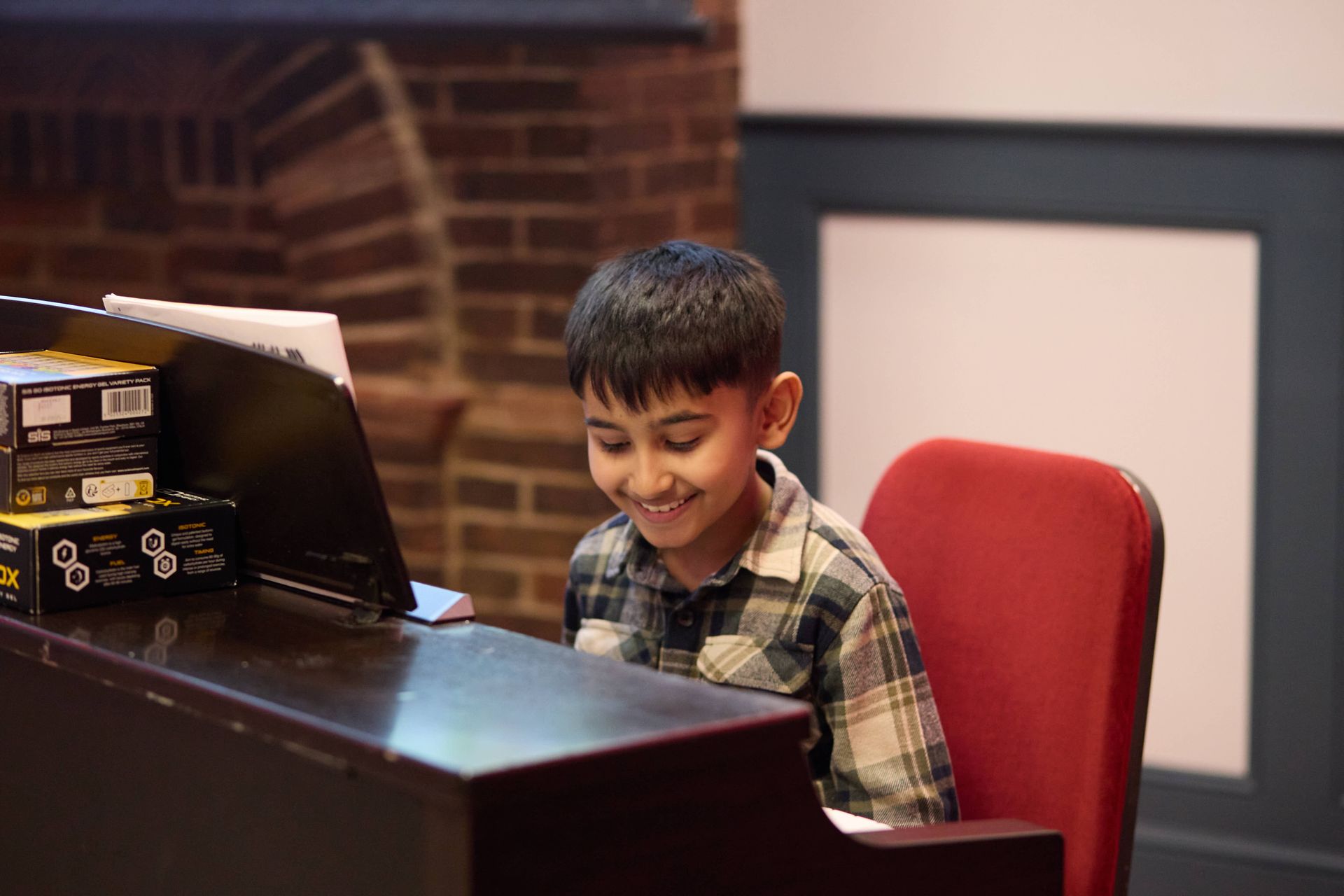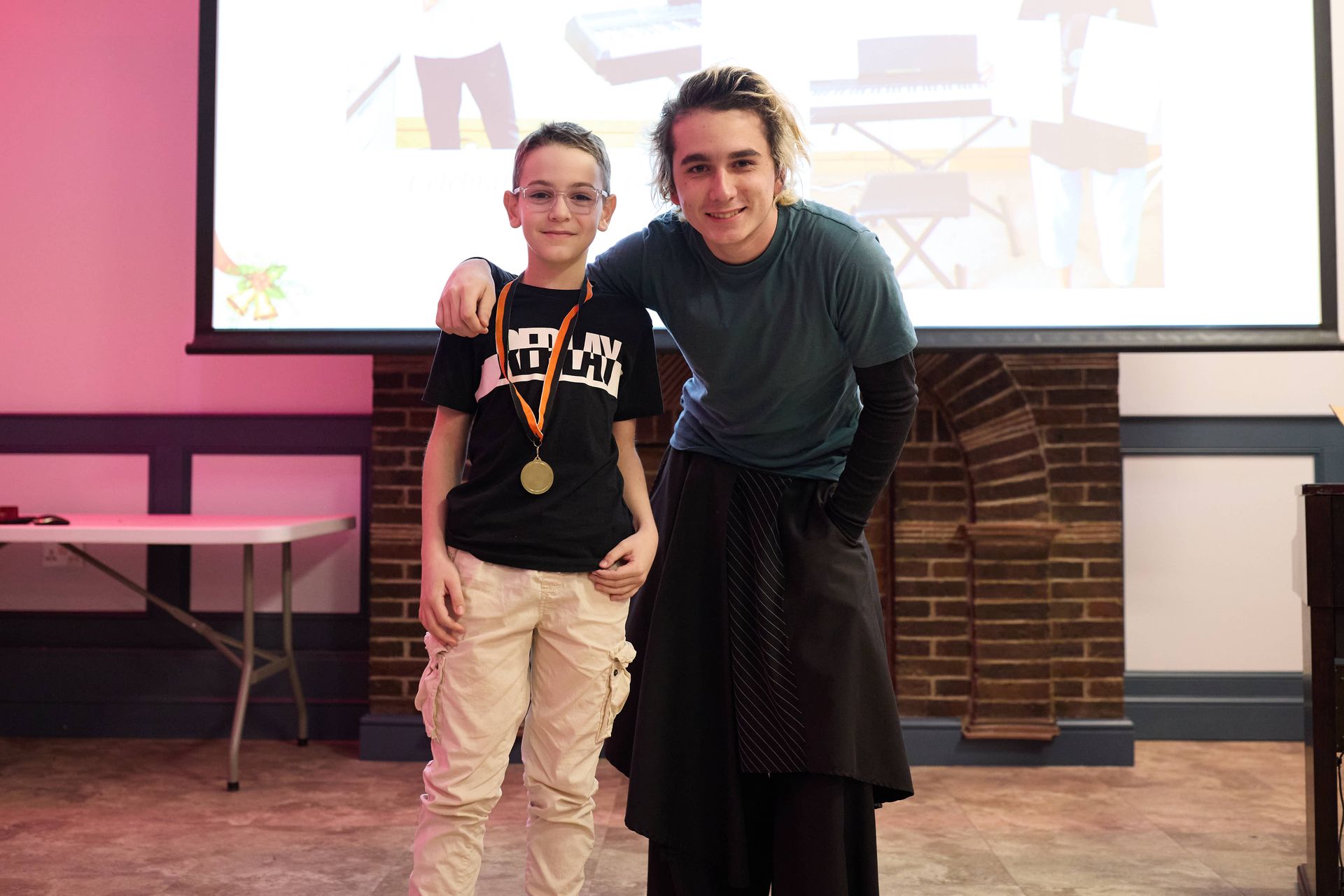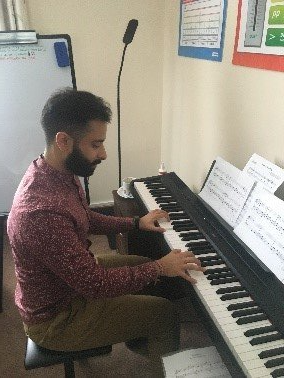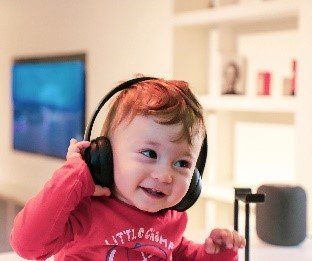Five Top Tips to Boost Your Piano Practice

Top tips you can implement into your piano journey to support your practice:
1. Hooking your piano practice to an existing part of your routine.
Choose an activity that you carry out everyday and use this as your cue to practice your instrument. Some examples may be: brushing your teeth, eating breakfast or getting dressed. This can avoid you forgetting to practice.
2. Seating position
Aim to use a chair which can remain stationary whilst you play or a piano stool. This can allow you to plant your feet firmly on the floor and sit upright with your arm at a relaxed 90-degree angle.
The correct posture can create ease and strength in your playing as you can play with more power and have more freedom to shift from one side of the keys to another as and when you need to.
Caption: Image of the correct posture and seating position
3. Listening to music
‘Active listening’ we have broken up into two branches, one way is to listen with headphones in to fully immerse yourself in the experience of listening to the music including listening out for chords, rhythms and melodies you enjoy/dislike the sound of. An alternative method can be to listen to your piece or section of a piece before trying it out yourself on the piano.
‘Passively listening’ is when you have music playing in the background whilst you are carrying out another activity, for example: whilst you are getting ready in the morning you listen to music. The section of the brain which is activate when we are learning music is activated both when we are actively and passively listening to music. Over time musicians who listen to music will pick up rhythms and spot patterns a lot faster using this method regularly.
4. Making piano practice easy
Aim to leave your music on the stand and decide in advance what and when you will practice playing a particular piece or exercise. This saves a lot of energy and time which could be used in your piano practice session.
5. Accountability and encouragement
For our younger students we recommend parents ask their children questions which can encourage them to reflect as well as gain a better understanding of where piano stands in their lives.
For adult students we recommend asking a friend, family member or a community of musicians which you may be apart of to hold you accountable to your goals.
Here are some examples for those who are holding a piano player accountable could ask:
- ‘What did you learn in your piano lesson today?’
- ‘Did you find the piece or exercise you played tricky?’
- ‘Do you have a particular song you would like to learn on the piano?’
- ‘Which question could you ask you teacher in your next piano lesson?’
If you missed our Facebook Live, feel free to catch the replay over on our Facebook Page here: https://fb.watch/3qnQAuUX02/
Remember that when you are trying out these hacks to look at them little and often but also be patient with yourself. If you wish to know more about these hacks and resources, feel free to take a look around our website or connect with us directly.
To find out more, feel free to get involved in our latest project “The Habits of the Top Performing Piano Players”, fill out our survey: https://bit.ly/2FDs8rf For your chance to win a Nintendo DS Lite or a £50 Amazon Gift Voucher.







